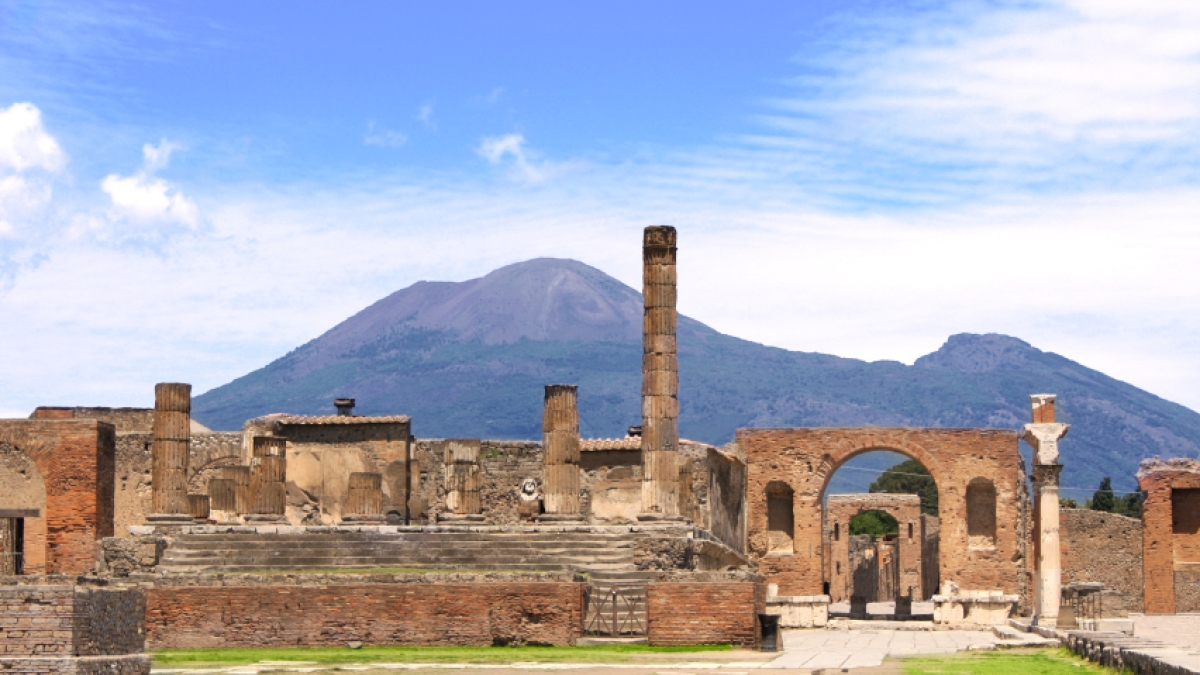Ancient Greek, Roman cultures focus of summer program in Naples, Italy

Over 2,000 years ago, southern Italy was the flourishing center of world civilization. Today the ancient Greek city of Neapolis, founded by Greek settlers in 470 B.C., and transformed by successive European cultures, remains one of the oldest continuously-inhabited cities in the world as Naples, Italy.
According to UNESCO, which named the city a World Heritage Site, “Naples has retained the imprint of the various cultures that emerged in Europe and the Mediterranean basin … making it a unique site, with a wealth of outstanding monuments."
This summer, students are invited to walk in the footsteps of the ancient Greeks and Romans with expert ASU faculty directors and local guides on a study abroad program to this historically rich and important location. Hosted by the Council on International Educational Exchange (CIEE) at the University of Naples L’Orientale, students are immersed in the ancient cultures of Naples, Pompeii, and Sicily.
Perhaps the greatest highlight of the program is the proximity and access to Pompeii, a near-perfectly preserved Roman town that powerfully illustrates Roman life in the first century A.D. Naples is a short train ride away from the spectacular ruins. Its skyline is dominated by Mount Vesuvius, an active volcano most famous for its eruption in A.D. 79, which buried Pompeii and Herculaneum in ash, preserving them for millennia.
“Pompeii is a miracle,” says historian Christopher Welser. “There is no experience that can bring the world of the ancient Romans to life more than walking through the streets and houses of Pompeii and Herculaneum and experiencing the places where the Romans lived, worked, and enjoyed themselves.”
In addition to Pompeii, students visit other sites, including some of the best-preserved Greek architecture in the world, as well as the ancient temples of Agrigento and Selinunte.
Classrooms for the program are literally without walls. Class meetings are held in the Naples Archaeological Museum, or on archaeological sites like Pompeii and Herculaneum. The first three weeks are spent in Naples, and the final week on a tour of Sicily.
“Sicily is amazing,” says faculty director Sarah Bolmarcich, “as soon as you get off the plane and glance around, you will understand why so many cultures – Greek, Roman, Carthaginian – desired control of the island and you too will fall in love with her.”
Rather than merely hearing about the Greeks and the Romans, students actually experience every aspect of their daily lives, from their towns to their artifacts. Naples is also home to several world-famous museums. For those fascinated by classical antiquity, nothing is more exhilarating.
Earning six credits over four weeks, students take two courses: “The History and Material Culture of Southern Italy” and “The Greeks in the West.” Coursework is designed to expose students to both the ancient Greeks and ancient Romans, the major classical cultures in the region. Examples of assignments include oral reports about art, architecture, and archaeological sites. To aid their studies, students have access to an excellent university library at L’Orientale. All coursework is in English.
Participants in the “Classics in Naples, Italy” program live in apartments with other CIEE students or Italian university students near the university area, and each student has a private bedroom and bathroom.
“Students who study the ancient Greeks and Romans discover a world that is often startlingly different from our own – but one that lies at the root of today's Western culture,” says Classics professor Mike Tueller. “As a result, these students often have their perspectives broadened in unexpected ways, and are able to see the world from a new angle. In conjunction with class work, a trip abroad to walk where the ancients walked and see through their eyes enables their world to come even more vividly alive.”
The School of International Letters and Cultures’ study abroad programs in the College of Liberal Arts and Sciences are among the longest running and most prestigious at Arizona State University. Founded in 1981, and directed by knowledgeable, world-class faculty, the programs offer students the opportunity to experience and study international humanities and learn languages firsthand while earning credit toward their degree.
For more information about the "Classics in Naples, Italy" program, contact faculty director Sarah Bolmarcich at sbolmarc@asu.edu.
Story by School of International Letters and Cultures communications intern Alison Graham.